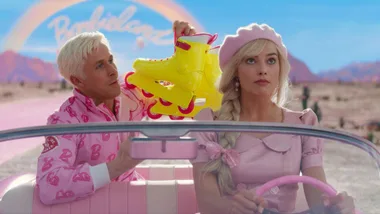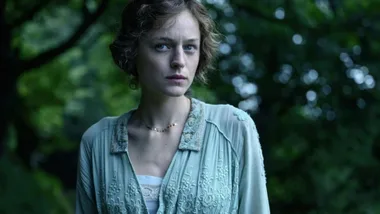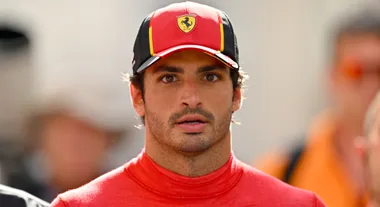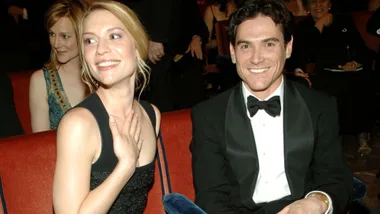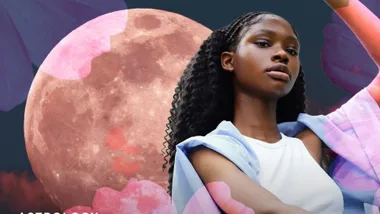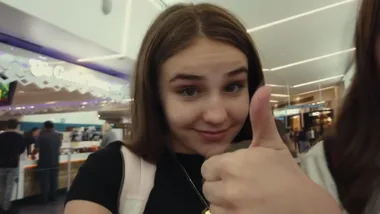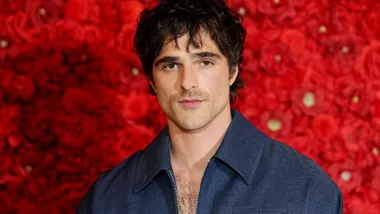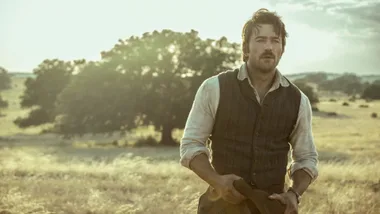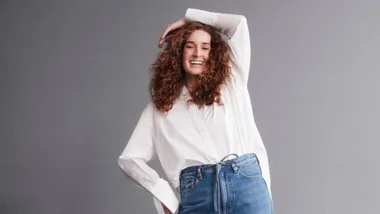In Papua New Guinea, feminism is almost a dirty word. “For a woman to label herself as a feminist is a very risky thing in PNG,” says Australian-based lawyer Elvina Ogil, 37, who identifies as a feminist herself.
Ogil wanted to start a conversation about the f-word in Papua New Guinea, so she launched the feminist podcast Who Asked Her earlier this year. “[The podcast] is about broadening our view of Papua New Guinean women at home because we have this narrow concept of ‘You’re not anything until you’re a housewife,’” says Ogil, who touches on important issues like mental health, cultural appropriation and toxic masculinity.
Here, Ogil reveals the “overwhelmingly positive” response she’s had to the revolutionary podcast and her grand plans for the future of Who Asked Her…
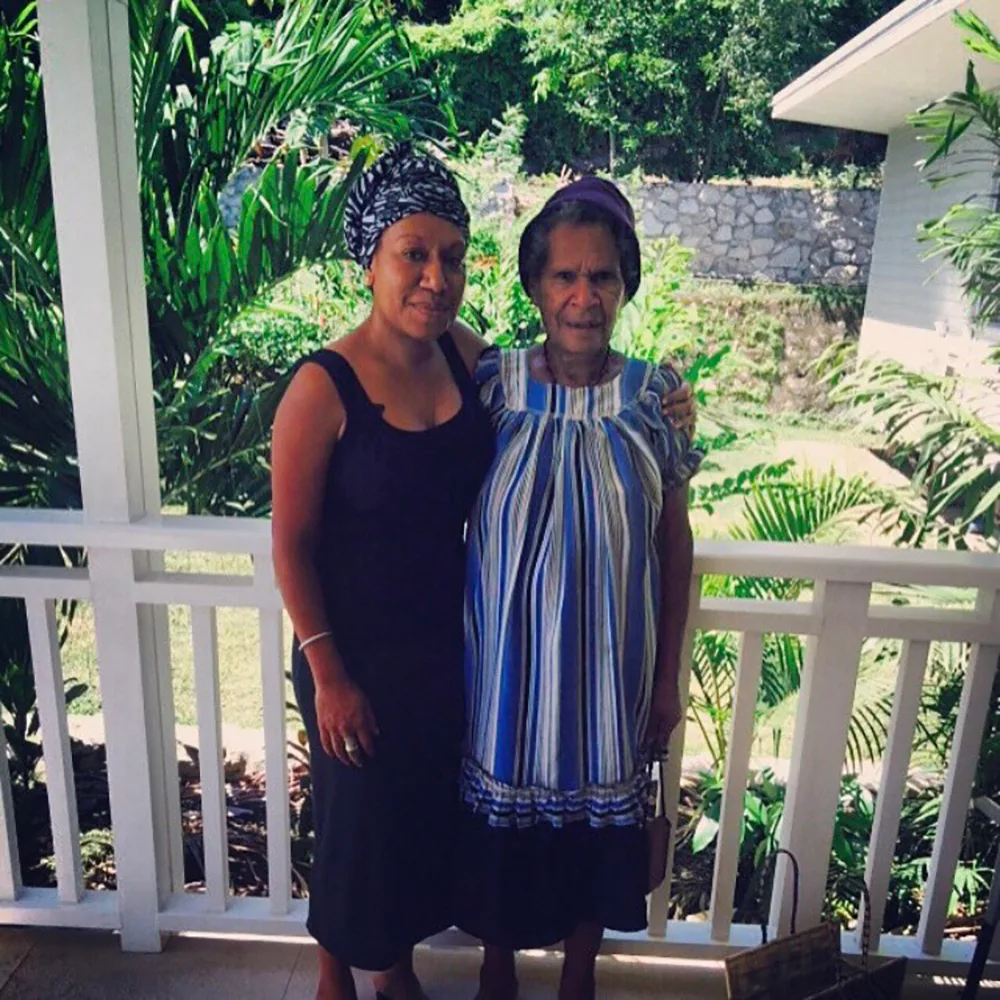
MARIE CLAIRE: Why did you launch your podcast Who Asked Her?
ELVINA OGIL: I’ve been on Twitter for a while now and I thought I was contributing to issues of national importance such as politics. But with social media, you’re restricted with what you can talk about. So a friend suggested starting a podcast and I thought, why not? I started in May this year and I’ve been surprised by how well it has done in that it has been so well received, particularly in PNG. It’s also become something much bigger than that; people have really appreciated what has been talked about. For example, I had a young lady reach out to me after my first episode and she said that her mother was the victim of horrendous rape and sexual assault in her youth and that she was always made to feel as if it was her fault. She said that after her mother listened to the first episode, she came to realise that it wasn’t her fault – after 30 years.
MC: What did you hope to achieve with the podcast?
EO: I wanted to start a conversation about issues of importance to Papua New Guineans across all demographics, [but] mainly women. In PNG, we still reduce our successful women to who she married and how many kids she’s had; her basic biological functions. That was one of the things I really wanted to talk about and have a live conversation because I think dialogue is important. A lot of younger men have been listening and if a young man in PNG is listening to an episode of Who Asked Her and then Googles misogyny and uses that to examine how he has treated women, then I will have achieved something.
MC: You’re touching on hard-hitting topics like femininity in PNG, cultural appropriation and the legacy of missionaries in PNG. Were you at all hesitant to bring these issues to the forefront?
EO: I was because I don’t want to get people offside. I really hope that I can show empathy and respect and honour someone else’s contribution even though I might not necessarily agree with what they say. I feel that we tend to say away from these tough discussions by saying “Oh this is PNG, this is how things are”. I read recently that a police officer had shot his wife in the face and killed her in a remote part of PNG. The police commander’s response was “This is PNG and these things happen.” I would really like us to elevate ourselves above those excuses. It’s unlikely that he’ll be investigated because domestic violence is so accepted back home.
MC: What’s been the response to the podcast so far?
EO: Overwhelmingly positive. I want people to disagree as well because that’s the whole point. I want people to be constructive and engage in conversation. The upcoming episodes are probably going to be the most uncomfortable. We’re going to talk about aid in PNG and what sort of knowledge gap we need to fill that will allow Papua New Guineans to have a seat at the table and how they can develop their country as well. The fourth episode is on mental illness and will include a group of women, one who is a trained psychologist. Mental health is not talked about and we’ve had higher rates of suicide [of late]. As a society we are reeling from this and are asking what we can do to help each other.
MC: In the first episode you talk about the stigma around feminism in PNG. Why do you think it’s such a dirty word there?
EO: I think it’s because we come from this traditional society and we are a predominately Christian country. Christianity in a lot of ways (and I don’t think that’s how it’s essentially meant to operate), solidifies that male patriarchy. Growing up, my parents would say “Yeah she’s a bit of a feminist” in a disparaging tone. As a kid, I thought feminism was a bad thing. I think it’s viewed in a dim light because we consider feminism just to be the asserting of social roles, yet we fail to understand that our women yield a magnificent power in our community. For a woman to label herself as a feminist is a very risky thing in PNG but I think a lot of our women are doing that now. They are taking the basic tenets of feminism and making it something about themselves.
MC: How can PNG move past the stigma surrounding feminism?
EO: I think it’s about gently pushing younger women to realise that it isn’t a bad thing. It doesn’t mean that you’re going to be an old woman who has no marriage prospects. It’s not about that. It’s about your place in the world and society – and demanding equal treatment. One of my friends was on the first episode and she explained it’s all about basic human rights and being treated equally. We fail to get that in PNG. The one thing I struggle with is that we have no women in parliament. Our representation is so poor. If we can come to terms with that understanding that feminism and our representation of women go hand in hand then maybe we will make some progress.
MC: Why is it so important for you to talk about misogyny and toxic masculinity?
EO: Because those hideous concepts still underpin the way we talk about domestic violence in PNG. As a country we have said that there is no place for domestic violence or any kind of violence in PNG. But just recently, a member of parliament beat his third or fourth wife. She posted a picture of herself bleeding on Facebook and the attacks that she got from people shocked me. Actually, they shouldn’t have shocked me but they disappointed me. The comments were “You’re a gold digger from Fiji.” Men will say, “If you know your place as a woman then you won’t get beaten.” There will be very little progress until men take responsibility for the fact that they are committing domestic violence and it is wrong. They are still finding ways to justify it. Domestic violence is so prevalent in PNG. Until we call toxic masculinity and misogyny for what it is in PNG and force our men to re-examine how they deal with it, there will be no progress in terms of domestic violence statistics.
MC: What is your hope for this podcast and for the future of feminism in PNG?
EO: My hope for the podcast is that it gets a broader reach. I’m listened to in various parts of the country and that really warms my heart. It gives me so much hope that there are people out there wanting to have these conversations and wanting to examine how we treat each other. Data is so expensive in PNG and I get messages from girls saying “I was walking down the street to go and get more credit so I can listen to this again.” My goal is to try and get it on radio so more people can listen to it. My hope for feminism is that all PNG girls will grow up and realise that it isn’t a bad word. It is about going into the world confidently and knowing that you have the right to occupy the space that you’re occupying, right next to PNG boys – as corny as it sounds.
Tune into Elvina Ogil’s podcast Who Asked Her here.
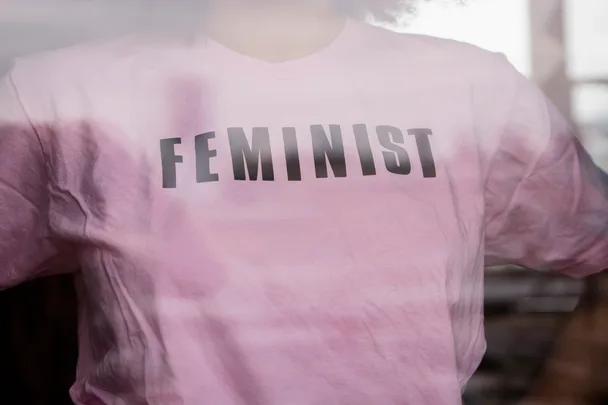 Getty
Getty
